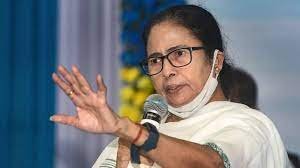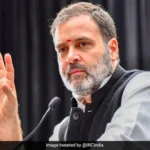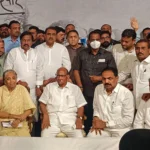In a strong display of opposition, the Bharatiya Janata Party (BJP) has intensified its criticism of the ruling Trinamool Congress (TMC) in West Bengal, asserting that the collapse of Chief Minister Mamata Banerjee’s government is inevitable. During a party event in his Bongaon Lok Sabha constituency in North 24 Parganas district, BJP MP Shantanu Thakur expressed his belief that the TMC government would not last beyond the next five months.
Thakur confidently stated, “I have a hunch that this government will not last beyond five months.” He further argued that the Mamata Banerjee government had lost its significance and suggested that the BJP would have achieved even greater success in the recently concluded panchayat polls had it not been for alleged widespread rigging orchestrated by the TMC.
The BJP’s assertion of an impending collapse of the TMC government underscores the escalating political tensions in West Bengal. The state has witnessed a fierce battle for power between the BJP and the TMC in recent years, leading to a significant shift in the political landscape. Mamata Banerjee, a charismatic leader who has held the reins of power in the state for a decade, faces mounting pressure from the BJP’s relentless opposition.
The BJP’s confident prediction of the TMC’s downfall reflects its determination to establish a strong foothold in West Bengal. The party has been striving to expand its influence beyond its traditional strongholds and has made significant inroads into the state’s political landscape. In the 2021 West Bengal Assembly elections, the BJP emerged as the primary opposition party, winning an impressive 77 seats out of 294, despite falling short of its ambitious goal of securing a majority.
Shantanu Thakur’s assertion that the Mamata Banerjee government has outlived its utility indicates the BJP’s growing confidence in its ability to challenge the ruling party’s dominance. The TMC, once hailed as the undisputed political force in West Bengal, now faces an emboldened opposition that is relentless in its pursuit of power.
The reference to alleged rigging in the panchayat polls highlights the contentious nature of the political landscape in West Bengal. Accusations of electoral malpractice have been a recurrent theme in the state’s politics, often deepening the divide between the BJP and the TMC. The BJP claims that widespread rigging by the ruling party prevented it from securing a larger number of seats, implying that the TMC’s hold on power is fragile and reliant on unfair tactics.
As the BJP steps up its offensive against the TMC, it aims to tap into the growing discontent among segments of West Bengal’s population. The party seeks to capitalize on issues such as governance, development, and law and order, positioning itself as an alternative to the ruling party. The BJP’s increasing popularity, particularly among sections of the electorate dissatisfied with the TMC, has fueled its optimism about the government’s impending collapse.
However, it is important to note that political predictions can be subject to uncertainty and various factors can influence the dynamics of a state’s political landscape. While the BJP remains resolute in its belief that the TMC government’s days are numbered, the future of West Bengal’s politics is far from certain. The TMC, led by the formidable Mamata Banerjee, still enjoys significant support and has proven its resilience in the face of challenges.
As the BJP intensifies its attacks and the TMC defends its stronghold, the political arena in West Bengal is set for a high-stakes battle. The next few months will be crucial in determining the fate of Mamata Banerjee’s government and the BJP’s aspirations in the state. The people of West Bengal, meanwhile, will closely observe the developments, eagerly awaiting the outcome of this fierce political contest.




